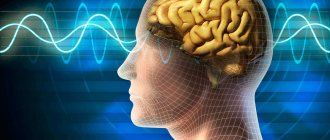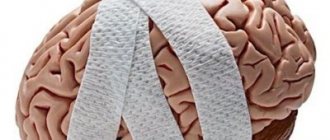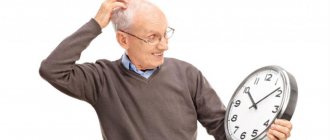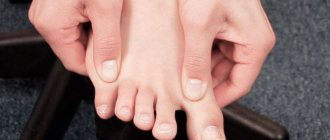Medical information is reliable Checked by Shaidullin Renat Flyurovich
Hypomania is a mood disorder characterized by mild mania in the absence of hallucinations, delusions, and other psychotic symptoms. Patients with hypomania often do not see a doctor because they consider themselves healthy. Treatment of the disease includes psychotherapy and medications.
Dr. Isaev’s clinic uses a full range of traditional therapeutic techniques and proprietary developments. Each patient of a medical institution undergoes a course of treatment for hypomania, tailored to the individual characteristics of the individual and the clinical manifestations of the disease.
Where does the disease called hypomania come from?
There are many reasons that can provoke the development of the disease. Psychiatrists include the following as the main prerequisites for the development of hypomania:
- Organic changes in the brain. For example, traumatic brain injuries, strokes and others.
- Chronic stress, which is accompanied by constant nervous tension.
- Taking narcotic drugs and psychoactive substances with stimulant effects.
- Drinking large amounts of psychostimulant drinks. These include energy drinks, coffee, alcohol, and strong brewed tea (chifir).
- Independent and abrupt refusal of antidepressants prescribed by a doctor after taking them for a long time.
- Endocrine disorders such as menopause, postpartum depression and hyperthyroidism.
It is not always possible to determine the specific cause of the pathology. Psychiatric clinic specialists note that some patients have a hereditary predisposition to hypomania. It manifests itself in familial cases of the disease.
Correction of violation
Hypomnesia is treated after identifying and eliminating the causes that caused it. For a patient during illness, the correct mental attitude and a friendly attitude from loved ones are important. In addition, it is necessary to completely eliminate any conflicts and situations that may lead to stress.
Solving puzzles, memorizing poems, and even regular reading will be useful for treatment.
If, after eliminating external factors, changes do not occur, you should contact a neurologist. This specialist will prescribe you the correct treatment and prescribe medications that have a positive effect on the vascular system and restore metabolic processes in the brain.
During treatment, it is necessary to periodically visit a neurologist and follow all his recommendations, be it the prescription of medications or various psychotherapy techniques, exercises, proper breathing, etc.
It should be remembered that the functioning of human memory depends on many cognitive processes:
- attention;
- perception;
- thinking.
Therefore, before you worry and go to the doctor, you should get rid of the negative influence of external factors. Perhaps this is what will help get rid of the problem.
Types of violations
In psychiatry, there are several types of hypomania. Depending on the severity of symptoms, there are:
- A latent variant of the disease, when the symptoms are mild or the patient has concomitant mental illnesses. This makes it difficult to make a timely diagnosis.
- Pure hypomania occurs with a characteristic clinical picture.
When talking with the patient, the doctor can determine the variant of hypomanic disorder based on the predominant symptoms:
- simple hypomania does not have any pronounced clinical manifestations;
- irritable (expansive) – manifested by frequent dissatisfaction and irritability of a person without significant reasons;
- adventuristic - characterized by the patient’s desire to leave home, engage in new activities, plunge headlong into a new job, open his own business in the absence of money;
- dysphoric hypomania - accompanied by frequent mood swings and intolerance towards other people;
- Querulant form - the patient constantly fights for his rights, there are no prerequisites for this.
What does this look like in real life?
As stated above, there is an extensive list of reasons leading to hypomnesia. Therefore, its various forms can also manifest themselves in different ways, but there are some common signs.
Most often, memory is weakened locally, and not generalized. This means that some of its functions can suffer greatly, while others remain unharmed. This especially applies to the ability of memory to store and reproduce stored information. In addition, there are situations when the patient cannot remember something, but after some time the same information is recalled with ease.
One of the main manifestations of the disease is frequent cases when a person says something to a friend, and after a while forgets what exactly he said.
Therefore, among the common symptoms of hypomnesia are:
- weakening of the sense of time;
- mechanical memory is more susceptible to disease than verbal-logical memory;
- it is difficult or even impossible for the patient to reproduce the chronology of recalled events;
- new incidents are remembered with greater difficulty than before.
In schoolchildren, hypomnesia can manifest itself in problems with retaining in memory material read or said by the teacher. Preschoolers with this disease have trouble remembering even short poems.
Clinical manifestations
The symptoms of the disease depend on the form of hypomania. Common manifestations of pathology include:
- Excessive irritation or euphoria, which is not associated with any circumstances in a person’s life and persists for several days in a row.
- Acceleration of the rate of speech and increased desire of the patient to talk with people around him.
- Behavior may be illogical. Some people with hypomania commit reckless acts, especially with the opportunistic variant of the pathology.
- The duration of sleep at night decreases and can reach 2-3 hours. The patient feels well and is very active during the day.
- Familiarity in communication with other people, erasing the norms of respect for age and morality.
- Increased libido, a desire for sex that cannot be suppressed.
- Changes in eating behavior in the form of bulimia or anorexia.
- Traits that were previously absent may appear in the character of a person with hypomania. They are too hypertrophied to go unnoticed.
If the disease appears against the background of disturbances in the endocrine system, it is accompanied by additional symptoms: hand tremors, fever, increased sweating, menstrual irregularities and causeless weight gain. In childhood, patients with hypomania are dominated by general hyperactivity and impulsiveness of actions. If the symptoms listed in this article appear, you should immediately contact a psychiatrist.
Etiology and causes of the disease
The list of reasons that can cause this memory disorder is quite extensive:
- Dementia is a relatively common disease in old age, which leads to memory loss and hypomnesia.
- Atherosclerosis and other cerebral vascular diseases. This also includes the consequences of a stroke.
- Smoking and alcohol can also cause disturbances in memory function, as they interfere with the full conduction of oxygen to the brain, which results in a lack of oxygen and subsequently poisoning.
- Head injuries are one of the main causes of memory loss. As is already reliably known, the temporal cortex of the brain is responsible for storing figurative memory, which means that any damage to it can lead to further disorders and memory failures.
- Brain tumors - in the clinical picture, as a rule, along with memory impairments, other disorders of the body appear.
- Mental disability and mental retardation can also impair normal memory function. For example, lead to hypomnesia.
People with vegetative-vascular dystonia (VSD), epilepsy, hypertensive diseases, drug addiction, somatic diseases, vitamin deficiencies and mental problems are especially at risk of memory disorders.
It is also worth mentioning that the effects of various medications can also lead to memory impairment, so you should carefully study the side effects of the medications you take.
Diagnosing hypomania
A psychiatrist diagnoses hypomania. All patients with symptoms of pathology are recommended to consult with an endocrinologist, neurologist and narcologist to determine the causes of the disease.
The main method of examination is the collection of existing complaints with clarification of personal history and heredity. The doctor talks with the patient and his relatives or close people, since the patient himself may deny any symptoms.
Laboratory and instrumental examination methods are prescribed to determine the causes of hypomania.
Can be carried out:
- Biochemical blood test to determine the level of thyroid hormones and female sex hormones. If abnormalities are detected, the patient is shown an additional examination - ultrasound of the thyroid gland and other diagnostic methods.
- Computed tomography or magnetic resonance imaging to evaluate the condition of the brain. Both methods make it possible to identify organic changes in its structures.
- EEG to detect abnormalities in brain activity. It is performed for patients with signs of hypomania in adults and children.
Only a professionally trained doctor interprets research results. Incorrect diagnosis can lead to ineffective therapy.
Anekphoria and hypomnesia are two sides of the same problem
Anekphoria often accompanies hypomnesia and is characterized by the inability to remember a word or any other known information without the help of other people.
As with hypomnesia, the patient temporarily seems to lose the ability to remember, but the clinical picture is slightly different.
For example, one of the patients who suffered from this disease claimed that her thoughts all the time revolved around memory problems and the fear of going crazy, but at the same time it seemed that the names and phone numbers she had forgotten were about to be remembered, but to remember them without However, there was no outside help.
Treatment of hypomania in Moscow
The main task of a doctor in a psychiatric department is to identify the primary disease and eliminate it. Therefore, treatment depends on the identified causes of hypomania. If it develops while taking psychoactive drugs, detoxification treatment is prescribed, aimed at removing them from the body. For endocrine pathologies, medications are used to correct the functioning of the endocrine glands.
The symptoms of hypomania can be eliminated with the help of medications. When treating hypomania in Moscow, specialists at Dr. Isaev’s Clinic use medications from the following pharmacological groups:
- Typical and atypical antipsychotics that normalize the patient’s activity and his perception of the world around him. Prescribed from minimal dosages with a gradual increase to therapeutic doses.
- Antipsychotics – eliminate the symptoms of hyperactivity and increased excitability of the patient. Used for severe clinical symptoms.
- Antidepressants normalize mood and prevent the progression of the disorder. Requires long-term use.
In addition to taking medications, psychotherapy is indicated for patients with hypomanic states. Psychotherapeutic assistance allows us to identify problems in a person’s mental state and correct his perception of the world around him. Psychotherapy in the treatment of hypomania can take place in the format of individual meetings with a specialist and group sessions with other patients. Combination therapy is most often used.
Amnesia - symptoms and treatment
Which doctor treats amnesia?
If memory deteriorates, you should consult a neurologist.
There is currently no treatment that guarantees complete memory recovery for amnesia. Evidence for effective treatment is inconsistent and varies between researchers.
Treatment for amnesia can be divided into:
- non-medicinal;
- medicinal.
Non-drug treatment
1. Social-deontological assistance (deontology is the doctrine of problems of morality and morality, a section of ethics).
A) Informing the patient and his relatives about the disease, prognosis and care options. Despite the previously popular idea that it is better for the patient not to know the nuances of his disease, a different approach has now been adopted, since incomplete and unclear answers from the doctor only increase anxiety.
Although increased anxiety will not directly affect the development of amnesia, it may indirectly affect the pathological processes that lead to memory impairment. For example, repeated stress will contribute to the progression of hypertension, which will ultimately worsen chronic cerebrovascular insufficiency and negatively affect memory. Long-term anxiety can also cause or worsen depression, which can worsen memory loss.
Inadequate information is unlikely to protect the patient in the age of information technology - television, the Internet, books will help to find the information of interest. Even in the absence of these sources, the “truth” can be easily obtained from neighbors, friends and acquaintances or roommates. The resulting controversy will undermine trust in the treating physician and the treatment process. Limiting communication and access to the media will not help the process, since limiting the flow of information will increase the progression of amnesia and disorientation.
B) Lifestyle changes and reasonable encouragement of the patient’s social activity. For example, communicating with people of your own age or visiting an interest group. If there is a potential danger to the life and health of the patient and others, restriction of social activity and justified guardianship (including hospitalization) may be required.
2. Physiotherapy and spa treatment. The effectiveness of physiotherapy and sanatorium-resort treatment is controversial, since for patients with amnesia the effect of “native walls” is important and even a short stay in an unfamiliar place causes adaptation failure. But in recovering patients, a change of environment and physical procedures can improve the general condition and evoke new associations, which can speed up memory recovery.
3. Psychological correction - techniques aimed at restoring memory and adaptation of the patient, working with shock trauma. For example, hypnotherapy - the use of classical and Ericksonian hypnosis, suggestions to restore memory. Hypnosis is especially effective for psychogenic types of amnesia. Regressive hypnosis is used when a person in a trance goes into his own past and, if successful, can restore his memory. Other methods of psychotherapy are also used: psychoanalysis, Jungian depth psychotherapy, Gestalt therapy and body-oriented psychotherapy.
Psychotherapy does not always directly lead to memory restoration, but it definitely reduces neurotic tension and manifestations of depression, which improves the quality of life and promotes further rehabilitation.
4. Surgical treatment is effective for memory impairment caused by tumors or hemorrhages. Surgery to remove the source of brain compression will stop the development of amnestic disorder, although this does not guarantee complete memory recovery. Memory recovery is determined by the degree of brain damage caused by the tumor and the efforts made for rehabilitation.
Drug treatment
1. Etiotropic therapy - treatment aimed at eliminating the cause of the disease. Regarding amnesia, it is effective only for a small number of diseases (but even eliminating the cause does not guarantee memory restoration):
- deficiency conditions - for example, vitamin B₁ deficiency, treatment consists of its replenishment;
- inflammatory diseases of the brain - meningitis and encephalitis, antibacterial or antiviral drugs with proven effectiveness against the pathogen are prescribed;
- poisoning - antidotes (antidote) are administered;
- in somatic diseases, therapy for the underlying disease is also the treatment of amnesia, for example, in infections accompanied by psychosis.
2. Pathogenetic therapy - medicinal effects on the mechanisms of disease development. For example, for vascular diseases, drugs are used: vinpocetine (Cavinton), pentoxifylline (Trental). Cholinesterase inhibitors are widely used in Alzheimer's disease: ipidacrine (Neuromedin), galantamine (Nivalin), rivastigmine (Exelon). By improving the transmission of nerve impulses in the central nervous system, they help slow down the pathological process. The effectiveness of anticholinergic therapy differs in different groups of patients - it is considered proven in relation to mild and moderate severity of symptoms of the disease, with severe cognitive impairment the effect is unlikely [4].
A separate group of nootropics can be distinguished - drugs with different mechanisms of action aimed at improving cognitive functions (memory, attention and thinking). For example: piracetam (“Nootropil”), hopantenic acid (“Pantogam”) and others. However, the effectiveness of these drugs in the treatment of amnesia does not have a clear evidence base, and their safety is disputed by some researchers [8][17]. If an ordinary person (not a medical professional) tries to find effective nootropics for the treatment of amnesia or another problem, he will find a lot of disparate and contradictory data, which is associated with active advertising (there is a kind of “brand war”) and the lack of a unified view on the problem among doctors.
3. Symptomatic therapy - the action of drugs is aimed at alleviating one or another symptom of the disease. Among these drugs can be noted: antidepressants, sedatives, anticonvulsants, antiasthenic drugs and many others [4][7][8].
Diet
A special diet for amnesia is not required, but it is important to avoid vitamin B₁ deficiency. It is found in most foods, but pork, poultry, brown rice, whole grain cereals, nuts and peas are richest in it [19].
Complications
A person with hypomanic disorder may not seek medical help for a long time, regarding irritability and hyperactivity as character traits. With a late start of treatment for hypomania, the patient develops additional disorders:
- General fatigue associated with overwork due to lack of sleep. This leads to a loss of the ability to concentrate on simple tasks and memory impairment. During the day there is constant drowsiness.
- Chronic overeating or undereating can lead to obesity or malnutrition. Against this background, the development of vitamin deficiencies, frequent infectious diseases and exacerbation of chronic pathologies is possible.
- Against the backdrop of frivolity and extravagance, patients often have financial problems. They are often fired from their jobs and expelled from educational institutions. Close people stop being friends with them, and those around them try to completely reduce contacts to a minimum. When apathy occurs, a person is unable to cope with these situations.
- Periods of activity are followed by depression, which can persist for several months. A depressive state increases the adverse effects of hypomania and negatively affects a person's prognosis.
Complications of a hypomanic state occur more often in children and people with a dysfunctional lifestyle.
Disease prevention
There is no specific prevention of hypomania. Psychiatrists recommend changing lifestyle to prevent the development of pathology. The recommendations are general:
- Avoid stress at work and in your personal life.
- Exercise regularly. Physical activity must be adequate for the person’s level of training.
- Normalize nutrition by increasing the consumption of fresh vegetables, fruits, berries, milk and fermented milk products, lean meats and fish. These products contain a large amount of microelements and vitamins necessary to maintain health.
- Eliminate bad habits, including smoking, drinking alcohol and using drugs.
- Use any medications only as prescribed by a doctor;
- When using psychotropic medications, their withdrawal should be agreed with a specialist.
If any signs of hypomania appear, it is recommended to consult a doctor. This makes it possible to identify pathology at an early stage of development, when non-drug approaches to treatment are highly effective.
Questions and answers
I am subject to frequent and sudden mood swings, I can move from joy to irritability and even aggression. Is this a symptom of hypomania?
Only a doctor can make a correct diagnosis based on examination, interviews with the patient and his relatives, as well as visual and laboratory diagnostic methods. Contact our clinic to get tested. We have been treating hypomania in Moscow for over 10 years. During this time, good practice has been developed, thanks to which we can return a person to a full life.









